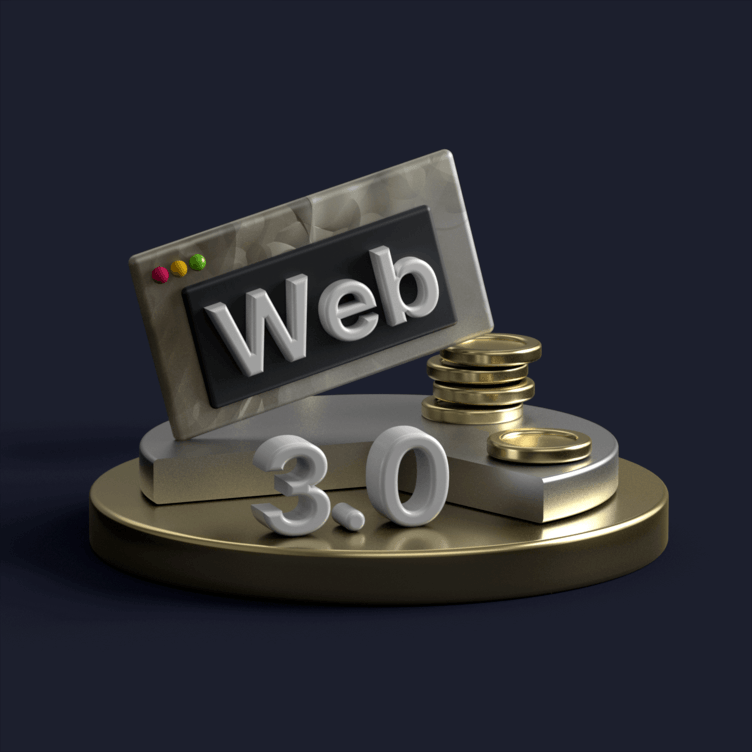The real estate industry is known for many things, its complexity, bureaucracy, corruption, and its ties to the greater economy. The industry has had its ups and downs in recent years, but it could be on the brink of a transformative shift thanks to blockchain technology. So, in this article, we’re going to take a look at how blockchain’s ability to enhance transparency, security, and efficiency is paving the way for a revolution in the realm of real estate transactions.
Secure and Immutable Records:
One of the core challenges in real estate is ensuring the legitimacy of property ownership records. Ever heard a story of someone selling a property that didn’t belong to them? Yes, these crimes happen often, however, with blockchain, property titles, ownership history, and transactions can be securely recorded in an immutable digital ledger. This would go a long way in the elimination of fraud, as altering records on a blockchain would require consensus from the entire network, making it nearly impossible to manipulate. Using the blockchain to ratify and verify property ownership would take a good chunk of the bureaucracy out of the way while ensuring security and legitimacy for all parties.
Smart Contracts for Seamless Transactions:
Adoption of blockchain technology would enable the creation of smart contracts, which are self-executing agreements that automatically execute when certain conditions are met. In real estate, this would translate into streamlined and transparent transactions. Buyers, sellers, and intermediaries would be able to rely on smart contracts to automate processes such as property transfers, escrow arrangements, and payment disbursements. This would technically lower the need for intermediaries, speed up the process, and aid in the minimization of errors.

Fractional Ownership and Tokenization:
Blockchain would also enable the breaking down of property ownership into fractional shares that could be tokenized and traded on blockchain platforms. This would introduce liquidity to otherwise traditionally illiquid real estate assets, thereby allowing more investors to enter and participate in real estate markets. Fractional ownership through tokens would provide a pathway for smaller investors to diversify their portfolios and access new opportunities.
Global Accessibility and Investment:
Due to blockchain’s borderless nature, investors from around the world would gain the ability to easily invest in properties in different countries without the hassle of navigating complex international regulations. This would open up a new era of cross-border real estate investment and foster a more inclusive market.
Efficient Due Diligence and Compliance:
Real estate transactions often involve extensive due diligence measures to verify property details, ownership history, clientele reliability and compliance with regulations. Blockchain’s transparent and tamper-proof records make the due diligence process more efficient, reducing the time and resources required to validate all the information that may be required.
Decentralized Property Management:
Blockchain can facilitate decentralized property management by enabling secure access to property-related information for various stakeholders, including property managers, tenants, and owners. This can lead to more efficient maintenance, transparent communication, and improved tenant experiences.
Pioneering Disintermediation:
As highlighted, blockchain’s ability to eliminate intermediaries would lead to an acceleration in the pace of transactions and an overall reduction in costs. By removing brokers, banks, and legal entities from the equation, blockchain would shift the power dynamic toward buyers and sellers, driving efficiency and eliminating some of the barriers of entry that the traditional intermediaries often enforce. This disintermediation would thoroughly simplify real estate transactions, aligning with the digital era’s demand for streamlined processes.

Data Privacy and Ownership:
Blockchain empowers individuals to have greater control over their personal data. Real estate transactions often involve sharing sensitive information, and blockchain’s decentralized identity solutions can enhance data privacy and enable secure sharing of information only when necessary.
As blockchain technology matures and gains wider adoption, its potential to revolutionize the real estate has only become more evident. By enhancing transparency, security, efficiency, and accessibility, blockchain is poised to reshape how properties are bought, sold, and managed, making real estate transactions more seamless and trustworthy than ever before. However, it is important to note that the real estate industry is usually closely tied to banks, governments and other regulatory institutions, some of which will be unlikely to hand over unrequited control to the blockchain as we know it. It is likely that some sort of compromise will be the way forward for blockchain in real estate, but we are hopeful that the advantages will speak for themselves. The future of real estate is going to be built on the foundation of blockchain innovation, by how much though? We can’t say just yet.







Facebook Comments